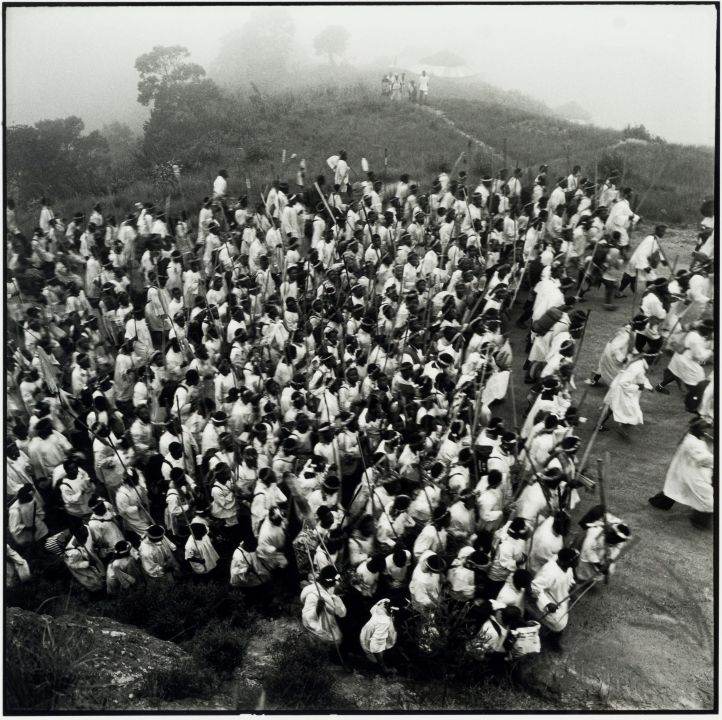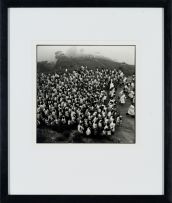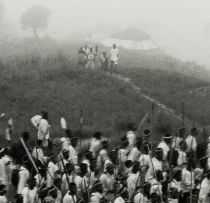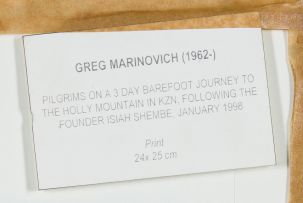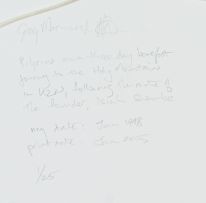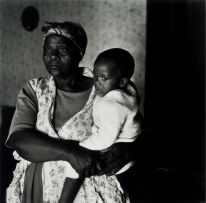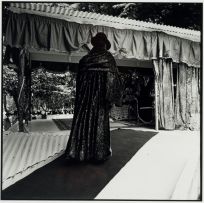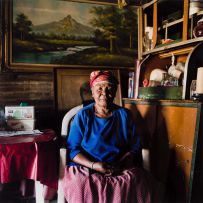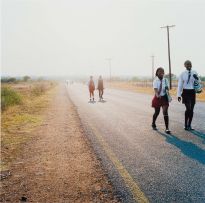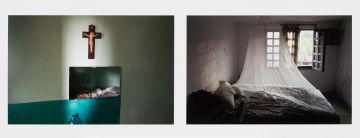Pilgrims on a Three-day Barefoot Journey to the Holy Mountain in KZN following the Route of the Founder Isiah Shembe
Greg Marinovich
About this Item
signed, dated Jan 1998 (negative) and Jan 2005 (print), numbered 1/25 and inscribed with the title in pencil on the reverse of the print; inscribed with the artist's name, the title and 'print' on a label adhered to the reverse of the frame
Notes
Isaiah Mloyiswa Mdliwamafa Shembe was born in the Drakensberg area of Natal in 1865. His father was a tenant farmer and initially Shembe followed in his footsteps, but later he was baptised as an evangelist and a preacher. Shembe claimed that God's Word told him to go to Natal and free his people of the yoke of the white man. He resisted until a lightning strike to his leg prompted his obedience. Blending Zulu traditions and culture with elements of the Old and New Testaments, under his charismatic leadership the Nazareth Baptist Church, known more commonly as AmaNazaretha or simply Shembe, saw a rapid growth. It is said that Shembe had a trusted messenger enter an area a day or two prior to his own arrival and herald the coming of a great prophet of God; he seldom disappointed. By 1911, Shembe had established a sacred site at eKuphakameni (Place of Spiritual Upliftment) which has become the church headquarters.
One of the ceremonies Shembe initiated was a three day pilgrimage to the Holy Mountain, Nhlangakazi, in the KwaZulu-Natal hinterland. The barefoot walk is the highlight of the Nazaretha religious calendar.
This massive and growing church, said to have some five million followers, is staunchly traditionalist and closely tied to Zulu society and culture. In the verdant rolling valleys outside the sanctity of the whitewashed stones that demarcate Shembe sacred ground, modern-day warriors, who were church members, fought and died in ferocious clashes in the internecine Zulu war of the 1980s and 1990s, yet both IFP and ANC leaders would attend the same church service.
Greg Marinovich
